The Role of Biotech in Future Food Production
19 November 2024
The future of food production is something we've all probably thought about at least once. I mean, with climate change, a growing population, and limited space for traditional agriculture, how will we continue to feed the world? Enter biotechnology—one of the most promising solutions to tackle these challenges head-on. But what exactly does biotech have to do with the food on our plates, and how can it revolutionize the way we produce food?
In this article, we'll dive deep into the role of biotech in future food production. We'll explore how it works, the benefits, the challenges, and what the future might look like for our food systems. By the end, you'll see why biotech could be the key to ensuring everyone has access to healthy, sustainable food, even in the face of mounting global challenges.
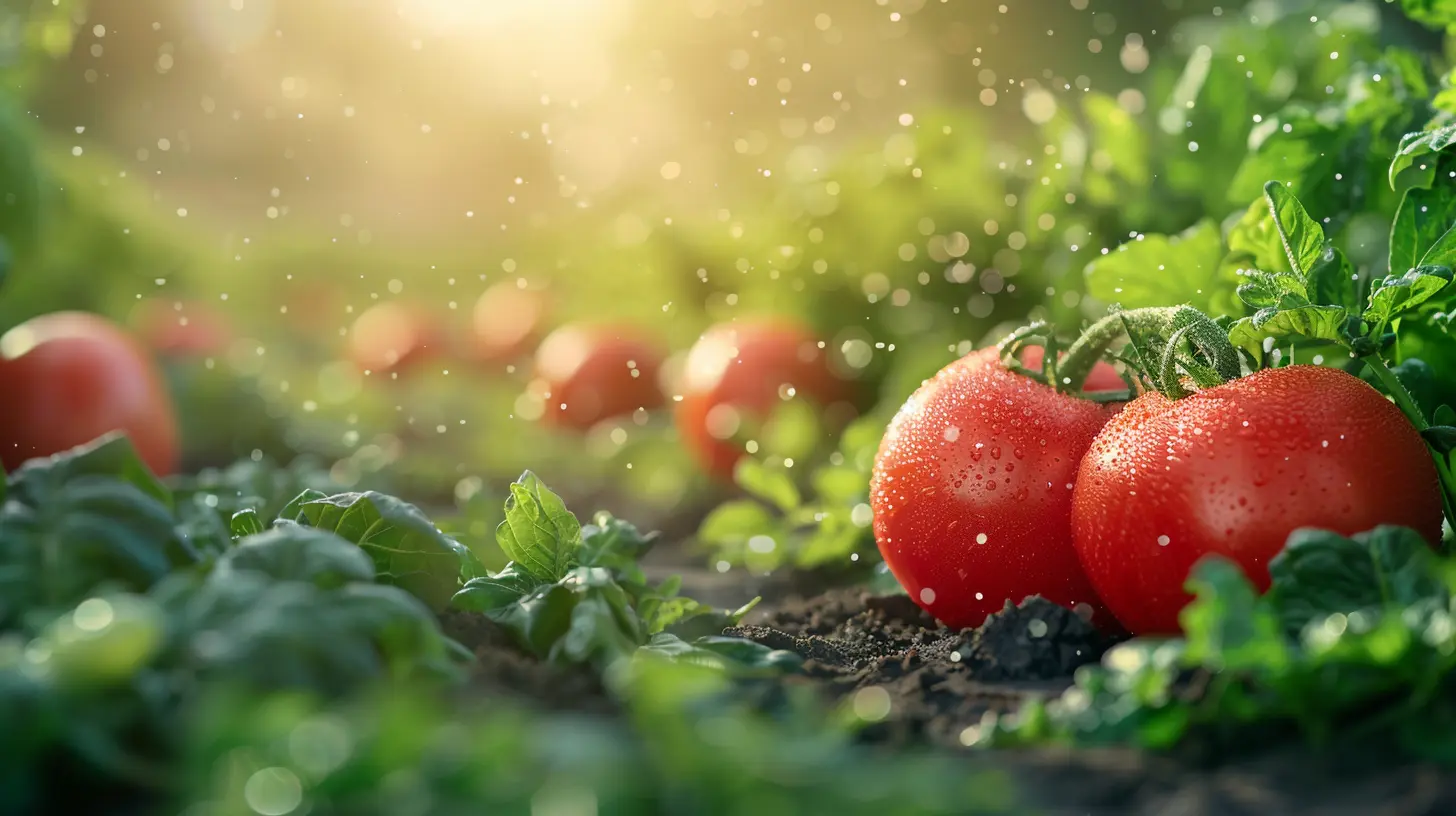
What is Biotechnology?
Before we get into the nitty-gritty of biotech's role in food production, let’s get on the same page about what biotechnology actually is.In simple terms, biotechnology is the use of living organisms (like bacteria, yeast, or plants) or their systems to develop or create new products, often by tweaking their genetic makeup. Think of it as using nature's own tools to create better solutions for us humans. From medicine to agriculture, biotech has been a game-changer across various industries.
When it comes to food, biotechnology can be used to improve crops, enhance nutritional content, create sustainable farming practices, and even produce entirely new food sources. In short, biotech is reshaping how we think about growing, producing, and consuming food.
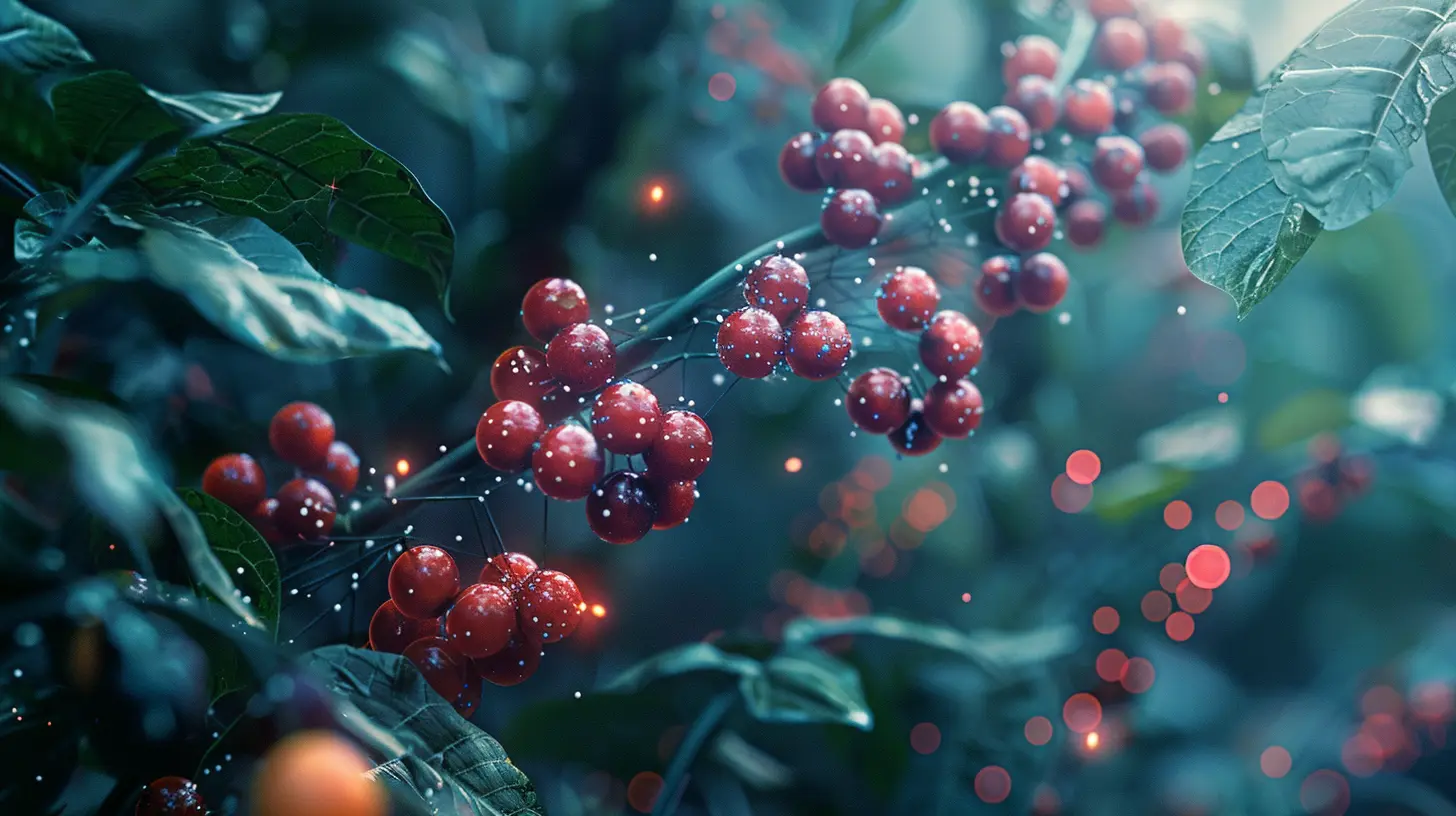
The Growing Need for Biotech in Food Production
You might be wondering, why do we even need biotech in food production? Aren’t traditional farming methods good enough? Well, here’s the thing—traditional farming has its limits.1. Population Growth
According to the United Nations, the world population is expected to surpass 9 billion by 2050. More people mean more mouths to feed, and our current food production system simply won’t be able to keep up. We’re already seeing strain on agriculture from resource limitations, and as demand rises, the pressure will only increase.2. Climate Change
Climate change is no longer a distant concern. We’re already seeing its effects on agriculture, with rising temperatures, unpredictable weather patterns, and more frequent natural disasters. These factors are making it harder to grow crops in many regions.Traditional farming methods are vulnerable to these changes, which is where biotech steps in. By developing crops that are resistant to drought, pests, and disease, we can help ensure food security in an increasingly unpredictable world.
3. Sustainability
Let’s face it—our current food production systems aren’t exactly sustainable. They require massive amounts of water, land, and energy, and are responsible for a significant portion of global greenhouse gas emissions.Biotech offers a chance to develop more sustainable ways of producing food. From vertical farming and lab-grown meat to genetically modified organisms (GMOs) that require fewer resources to grow, biotech is helping us rethink the way we produce food.
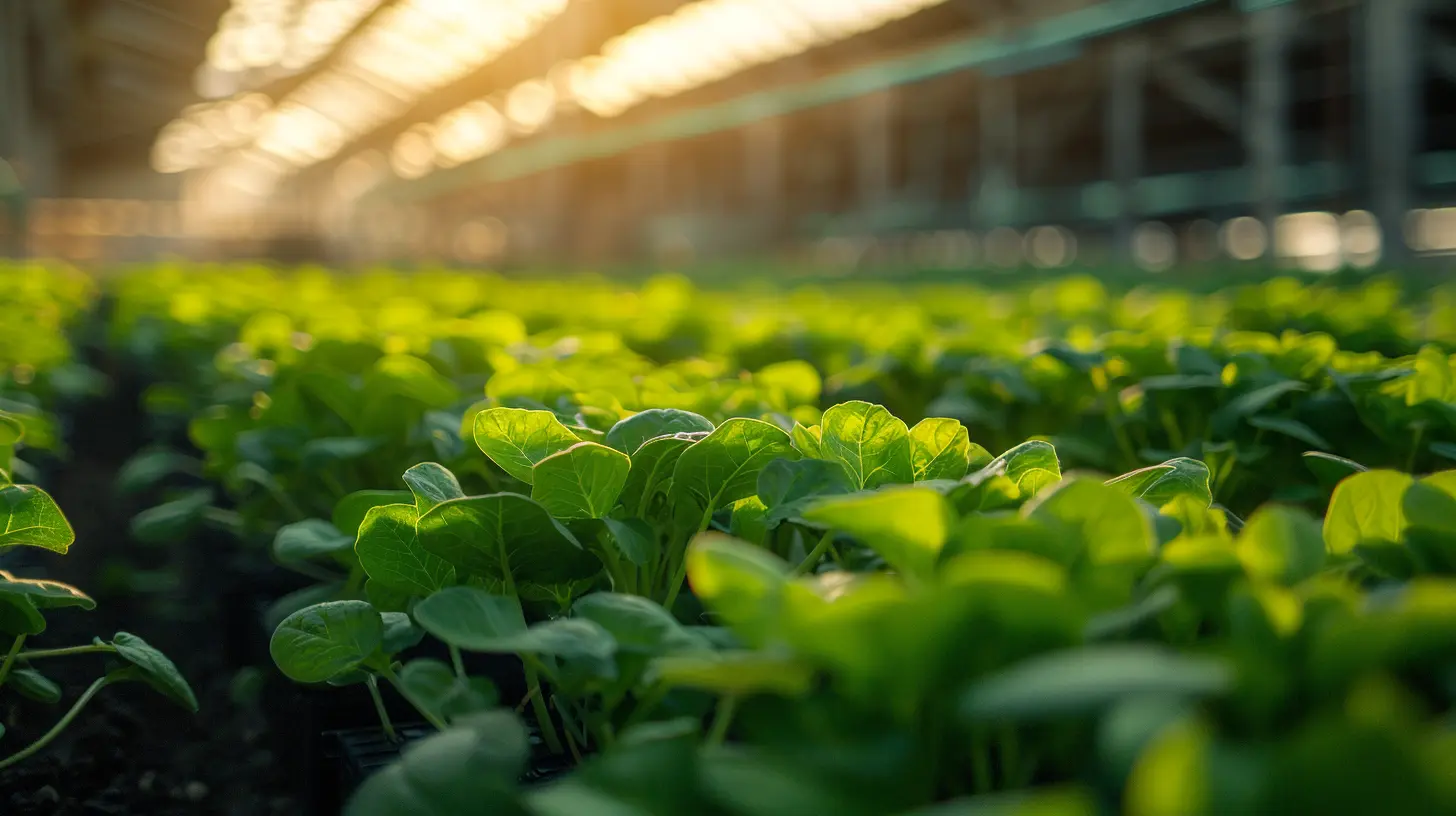
How Biotech is Transforming Food Production
So, now that we’ve established why biotech is so important, let's take a look at how it’s already being used to change the way we produce food.1. Genetically Modified Organisms (GMOs)
When most people think of biotech and food, GMOs are probably the first thing that comes to mind. And while GMOs have gotten a bit of a bad rap over the years, they’re actually one of the most effective tools we have for improving food production.GMOs are crops that have been genetically altered to enhance certain traits. For example, a crop might be modified to be more resistant to pests, require less water, or have a longer shelf life.
One of the most well-known examples of a GMO is Bt corn. This type of corn has been modified to produce a protein that’s toxic to certain pests, reducing the need for chemical pesticides. Not only does this help farmers grow more food, but it also reduces the environmental impact of farming.
2. Lab-Grown Meat
Lab-grown meat—or cultured meat—is exactly what it sounds like: meat that’s grown in a lab from animal cells, rather than being raised on a farm. While it might sound a bit futuristic, lab-grown meat is already a reality, with companies like Memphis Meats and Mosa Meat leading the charge.The benefits of lab-grown meat are huge. For one, it requires far fewer resources than traditional livestock farming. According to some estimates, lab-grown meat could reduce land use by 99%, water use by 96%, and greenhouse gas emissions by 78-96%. Plus, it eliminates the ethical concerns around animal welfare that come with traditional meat production.
3. CRISPR and Gene Editing
CRISPR is a revolutionary gene-editing technology that allows scientists to make precise changes to an organism's DNA. Unlike traditional GMOs, which often involve inserting genes from one species into another, CRISPR allows for more subtle, targeted changes.In food production, CRISPR is being used to develop crops that are more resilient to climate change, have higher yields, and are more nutritious. For example, scientists are working on CRISPR-modified wheat that’s resistant to fungal diseases, as well as rice that can survive in saltier soils—a growing problem due to rising sea levels.
4. Microbial Fermentation
Microbial fermentation is another exciting area of biotech that’s already being used to produce everything from alternative proteins to dairy products.Companies like Perfect Day and New Culture are using microbial fermentation to create animal-free dairy products. By programming microorganisms to produce the same proteins found in cow's milk, they’re able to create cheese, yogurt, and other dairy products without the need for cows. This process requires fewer resources and has a much lower environmental impact than traditional dairy farming.
5. Vertical Farming and Hydroponics
While not exclusive to biotech, vertical farming and hydroponics are closely tied to the advancements in biotech, especially when combined with genetically modified plants designed for these systems. Vertical farming allows us to grow crops in stacked layers, often indoors, using less land and fewer resources than traditional farming.Hydroponics, on the other hand, is a method of growing plants without soil, using nutrient-rich water instead. These systems can be optimized using biotech to grow crops more efficiently and sustainably, and they’re particularly well-suited to urban environments where space is limited.
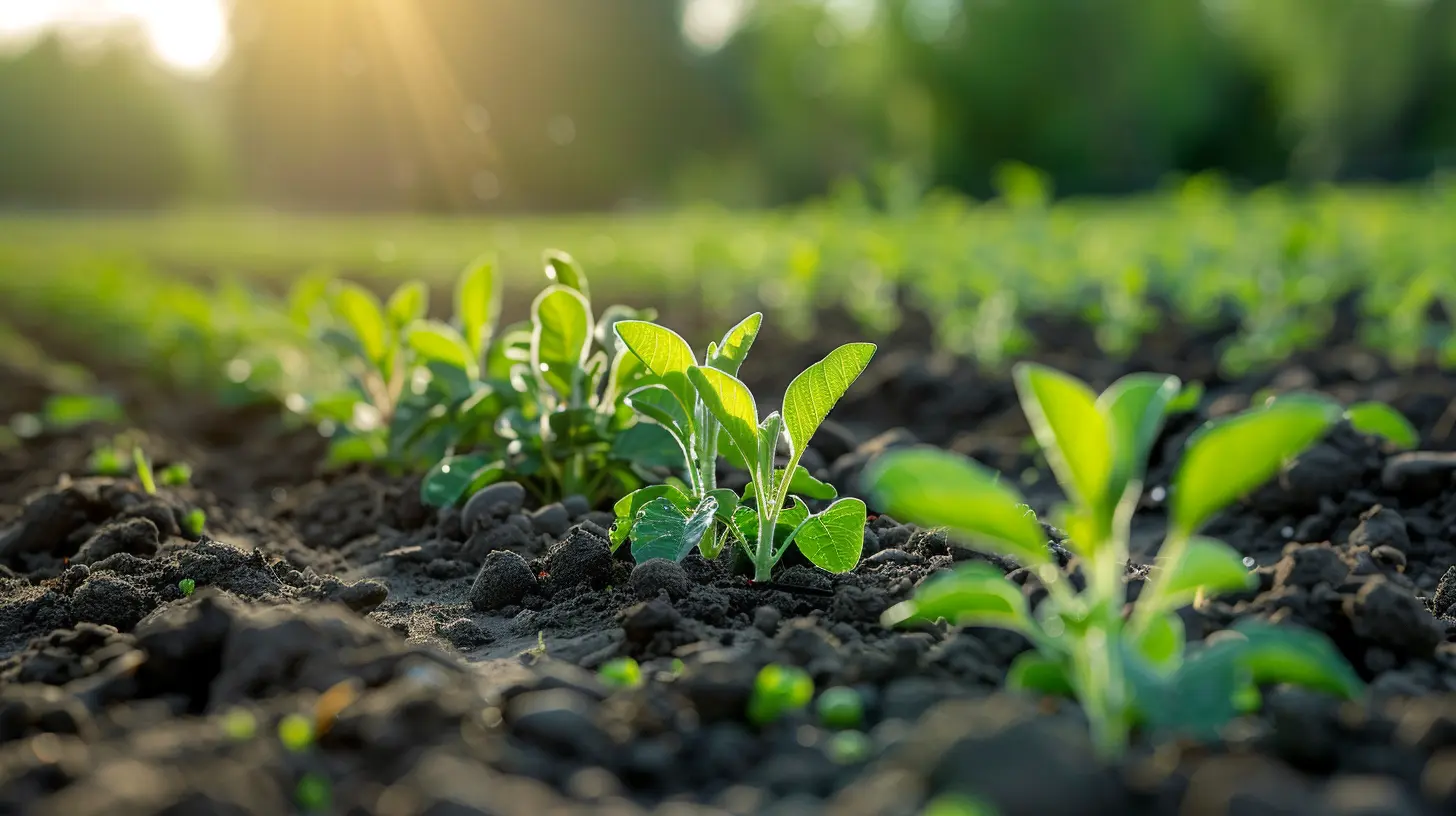
The Benefits of Biotech in Future Food Production
Now that we’ve covered some of the ways biotech is being used in food production, let’s talk about the benefits. Spoiler alert: there are a lot of them.1. Increased Food Security
As we’ve already mentioned, biotech has the potential to significantly increase food security by making crops more resilient to climate change and other environmental challenges. By developing crops that can withstand drought, pests, and disease, we can ensure a more stable food supply in the face of growing global challenges.2. Improved Nutrition
Biotech isn’t just about growing more food—it’s also about growing better food. Through genetic modification and other biotech techniques, we can develop crops that are more nutritious, helping to address issues like malnutrition and food inequality.For example, Golden Rice is a type of rice that has been genetically modified to produce beta-carotene, a precursor to vitamin A. This could help combat vitamin A deficiency, which is a major public health issue in many developing countries.
3. Reduced Environmental Impact
One of the biggest benefits of biotech is its potential to reduce the environmental impact of food production. Whether it’s through lab-grown meat, GMOs that require fewer resources, or vertical farming, biotech offers numerous opportunities to make our food systems more sustainable.4. Ethical Considerations
For those concerned about animal welfare, biotech offers a more ethical way to produce food. Lab-grown meat, for example, eliminates the need to raise and slaughter animals, while microbial fermentation allows us to produce dairy products without cows.Challenges and Controversies
Of course, no technology is without its challenges, and biotech is no exception. There are several potential downsides and controversies that need to be addressed if biotech is going to play a major role in future food production.1. Public Perception
One of the biggest challenges facing biotech is public perception. GMOs, in particular, have faced significant backlash from consumers who are concerned about their safety and environmental impact. While numerous studies have shown that GMOs are safe to eat, the public debate continues, and many people remain skeptical of biotech in food production.2. Ethical Concerns
While biotech has the potential to reduce the ethical concerns around animal welfare, it also raises new ethical questions. For example, who should have control over the technology? How should it be regulated? And what are the long-term consequences of altering the genetic makeup of our food?3. Economic Disparities
Lastly, there’s the issue of economic disparity. While biotech offers many benefits, it’s also expensive to develop. This raises concerns about accessibility, particularly for farmers in developing countries who may not have the resources to adopt these new technologies.
The Future: What’s Next?
Despite these challenges, the future of food production looks bright, thanks to biotechnology. As the technology continues to advance, we can expect to see even more innovative solutions that will help us feed a growing population while reducing the environmental impact of agriculture.From lab-grown meat to gene-edited crops, the possibilities are endless. And while there are still hurdles to overcome, one thing is clear: biotech is going to play a major role in shaping the future of food.
Conclusion
Biotechnology is revolutionizing food production in ways we could have only imagined a few decades ago. By harnessing the power of genetics, fermentation, and advanced farming techniques, we’re creating a more sustainable, nutritious, and ethical food system for the future. While challenges remain, the potential benefits of biotech in food production are too significant to ignore.So, the next time you sit down for a meal, take a moment to think about how biotechnology might have played a role in getting that food onto your plate. Because the future of food is already here—and it’s being built in a lab, a field, or even a test tube.
all images in this post were generated using AI tools
Category:
Future TechAuthor:

Reese McQuillan
Discussion
rate this article
24 comments
Tate Moore
Great insights on the intersection of biotech and food production! It’s inspiring to see innovative solutions being explored to address future food challenges. Looking forward to seeing how this evolves!
February 3, 2025 at 4:36 AM

Reese McQuillan
Thank you! I'm glad you found it inspiring. The potential of biotech in food production is indeed exciting, and I can't wait to see how these innovations develop!
Hazel Wagner
Great insights on biotech's potential! It's exciting to see how these innovations could enhance food security and sustainability. Looking forward to more discussions on ethical implications and advancements in this field.
January 29, 2025 at 8:26 PM

Reese McQuillan
Thank you for your thoughtful comment! I'm glad you found the insights valuable. I'm excited to explore the ethical implications and advancements in biotech further. Stay tuned for more discussions!
Mindy McPherson
This article raises fascinating points about biotech's potential in food production! I'm curious about how genetic engineering techniques will balance sustainability and safety. What specific innovations do you think will have the greatest impact on our food systems?
January 23, 2025 at 12:02 PM

Reese McQuillan
Thank you for your interest! Innovations like CRISPR for crop modification, precision fermentation, and lab-grown meat are poised to significantly enhance sustainability while ensuring safety in food production.
Laura McCloud
Great insights! Biotech has incredible potential to enhance food security and sustainability. Looking forward to seeing how innovations will reshape agriculture for future generations.
January 19, 2025 at 9:45 PM

Reese McQuillan
Thank you! I'm excited about the positive impact biotech can have on food security and sustainability in agriculture.
Maddison Reilly
Biotech is key for sustainable, efficient food production solutions.
January 15, 2025 at 5:30 AM

Reese McQuillan
Absolutely! Biotech plays a crucial role in enhancing crop resilience, improving yields, and reducing resource use, all vital for sustainable food production.
Juno Jordan
Biotech innovations are crucial for sustainable food production, enhancing crop resilience, improving nutritional profiles, and reducing environmental impact. Embracing these technologies can help meet the demands of a growing population while ensuring healthier ecosystems for future generations.
January 12, 2025 at 12:40 PM

Reese McQuillan
Thank you for highlighting the importance of biotech innovations in sustainable food production. These advancements are indeed vital for addressing the challenges of a growing population while preserving our ecosystems.
Margaret McNaughton
Exciting times lie ahead as biotech transforms food production! Embracing innovation can enhance sustainability, improve nutrition, and feed our growing population. The future looks bright and promising!
January 10, 2025 at 5:59 AM

Reese McQuillan
Thank you! It's inspiring to see how biotech can revolutionize food production for a sustainable and nourished future.
Kyle Perry
This article provides an insightful overview of how biotechnology can enhance food production sustainably. The potential for improved crop resilience and reduced resource usage is particularly promising. Embracing these innovations will be crucial in addressing global food challenges while minimizing environmental impact. Thank you for shedding light on this important topic!
January 7, 2025 at 1:26 PM

Reese McQuillan
Thank you for your thoughtful comment! I'm glad you found the article insightful and agree on the importance of biotechnology in sustainable food production.
Angie Stevens
Biotech: Pioneering sustainable food solutions for a brighter future!
January 3, 2025 at 12:25 PM

Reese McQuillan
Absolutely! Biotech has the potential to revolutionize food production by increasing yields, enhancing nutrition, and reducing environmental impact, paving the way for a more sustainable future.
Amy McConnell
Biotech holds remarkable potential to enhance food production sustainably, addressing global challenges like climate change and food security while fostering innovation in agriculture for a healthier future.
December 30, 2024 at 7:58 PM

Reese McQuillan
Thank you for your insightful comment! I completely agree—biotech is key to sustainably boosting food production and tackling pressing global issues.
Brick Hamilton
Fascinating insights! I'm eager to see how biotechnology can transform food production sustainably and address global food security challenges.
December 26, 2024 at 12:04 PM

Reese McQuillan
Thank you! I'm glad you found it fascinating—biotechnology indeed holds great promise for sustainable food production and improving global food security.
Zoey Forbes
Forget garden gnomes; in the future, we’ll have lab-grown veggies wearing tiny lab coats! Who knew carrots could double as scientists? With biotech on the menu, our salads might just start recommending the best dressings based on their nutritional profiles. Bon appétit!
December 21, 2024 at 8:33 PM

Reese McQuillan
That’s a fun and imaginative take! The integration of biotech in food production could indeed lead to exciting innovations in how we grow and consume our food.
Ava Strickland
This article insightfully highlights the potential of biotech in enhancing food production through improved crop resilience and sustainability. While the benefits are significant, it’s crucial to address ethical concerns and regulatory challenges to ensure that advancements in biotechnology are safe and equitable for all.
December 16, 2024 at 1:25 PM

Reese McQuillan
Thank you for your thoughtful comment! I completely agree that while biotech holds great promise for enhancing food production, addressing ethical and regulatory challenges is essential for ensuring safe and equitable advancements.
Zander McAleer
Biotechnology is revolutionizing food production by enhancing crop resilience and nutritional value. As we face global challenges like climate change and population growth, biotech innovations are not just beneficial—they're essential. Embracing these advancements will ensure sustainable practices and secure food systems for future generations. The future of food is biotech.
December 12, 2024 at 8:59 PM

Reese McQuillan
Thank you for your insightful comment! I deeply agree that biotech innovations are crucial in addressing the challenges of food production, particularly in the face of climate change and population growth. Embracing these advancements is key to building a sustainable food future.
Selkie Hines
Biotech's potential in food production is immense, offering innovative solutions for sustainability, efficiency, and resilience in agriculture to meet global demands.
December 9, 2024 at 7:36 PM

Reese McQuillan
Thank you for your insight! I completely agree—biotech holds great promise in transforming food production to address sustainability and efficiency challenges.
Atlas Harris
Biotech is crucial for sustainable food.
December 3, 2024 at 11:23 AM

Reese McQuillan
Absolutely! Biotech holds the key to enhancing crop yields, improving resistance to pests, and reducing resource use, making it essential for sustainable food production.
Lucas McAdams
This article insightfully highlights the transformative potential of biotech in food production. It's fascinating to consider how innovation can address global challenges in sustainability and nutrition. Excited to see what the future holds!
November 27, 2024 at 8:39 PM

Reese McQuillan
Thank you for your thoughtful comment! I'm glad you found the article insightful. The future of biotech in food production indeed holds great promise for sustainability and nutrition.
Tenley Horne
Great insights on the intersection of biotech and food production! This article highlights the potential for innovative solutions to address global food challenges, fostering sustainability and efficiency in agriculture.
November 26, 2024 at 1:01 PM

Reese McQuillan
Thank you! I'm glad you found the insights valuable. Biotech truly holds great promise for enhancing sustainability and efficiency in food production.
Heather Baker
Biotech stands at the forefront of revolutionizing food production, offering innovative solutions to global challenges. By enhancing sustainability and efficiency, we can nourish a growing population while protecting our planet. Embrace the future of food—it's vibrant, transformative, and essential!
November 25, 2024 at 3:59 AM

Reese McQuillan
Thank you for your insightful comment! I completely agree—biotech is crucial for sustainable and efficient food production, addressing global challenges while ensuring we can nourish future generations.
Valeris Harmon
Exciting innovations ahead! Biotech will transform food!
November 23, 2024 at 8:21 PM

Reese McQuillan
Absolutely! The potential of biotech in food production is truly transformative, promising enhanced sustainability, improved nutrition, and resilience in our food systems.
Melissa Porter
This article prompts fascinating questions about innovation in food production! I'm curious to see how biotech can address global challenges like sustainability and food security. The potential advancements could reshape our relationship with food in surprising ways. Exciting times ahead!
November 20, 2024 at 9:54 PM

Reese McQuillan
Thank you for your insightful comment! I'm glad you found the article engaging—biotech indeed holds great promise for transforming food production and addressing key challenges. Exciting times indeed!
Michelle McCullough
This article highlights the transformative potential of biotech in sustainable food production. By enhancing crop resilience and nutritional value, it addresses global challenges and paves the way for a healthier future.
November 19, 2024 at 8:50 PM

Reese McQuillan
Thank you for your thoughtful comment! I'm glad you found the article's insights on biotech's potential in sustainable food production compelling.
Noora Henderson
Exciting times ahead! Biotech is like the superhero of food production, ready to tackle challenges and nourish the world. Let’s embrace innovation for a tastier, sustainable future!" 🍽️✨
November 19, 2024 at 1:51 PM

Reese McQuillan
Absolutely! Biotech holds incredible potential to enhance food production sustainably and deliciously. Exciting innovations are indeed on the horizon! 🌱✨
Charlotte Lee
This article provides a clear overview of biotech's potential in food production, highlighting both innovative solutions and ethical considerations that are essential for sustainable development.
November 19, 2024 at 4:14 AM

Reese McQuillan
Thank you for your feedback! I'm glad you found the article informative and balanced in addressing both innovation and ethics in biotech for food production.
MORE POSTS

The Synergy Between Fintech and E-commerce: Simplifying Payments

Exploring the Role of AI in Modern Smartphones
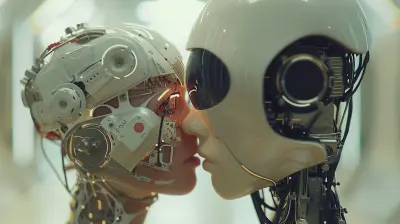
The Impact of Neuromorphic Computing on AI Evolution

Smart Displays vs. Smart Speakers: Which Is Right for Your Home?

Embedded Finance: The Future of Seamless Financial Services

Smart Displays in Educational Settings: The Classroom of Tomorrow

The Role of Blockchain in Decentralized Finance (DeFi)

How Digital Identity Solutions are Transforming Fintech Security
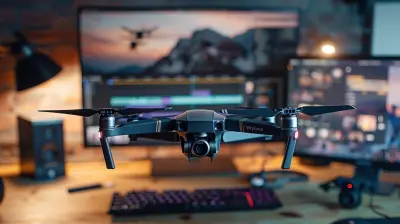
The Best Video Editing Software for Drone Footage

Superposition and Entanglement: The Core Concepts of Quantum Computing

How Digital Transformation is Changing the Face of Customer Support

Understanding Bluetooth Audio Codecs: What You Need to Know

How to Customize Your Smartphone for a Personalized Experience
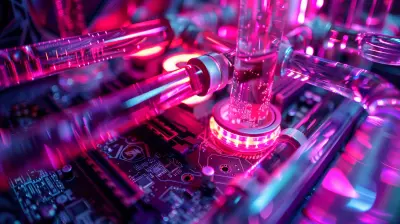
How Liquid Cooling Works: An In-Depth Guide for DIY Enthusiasts